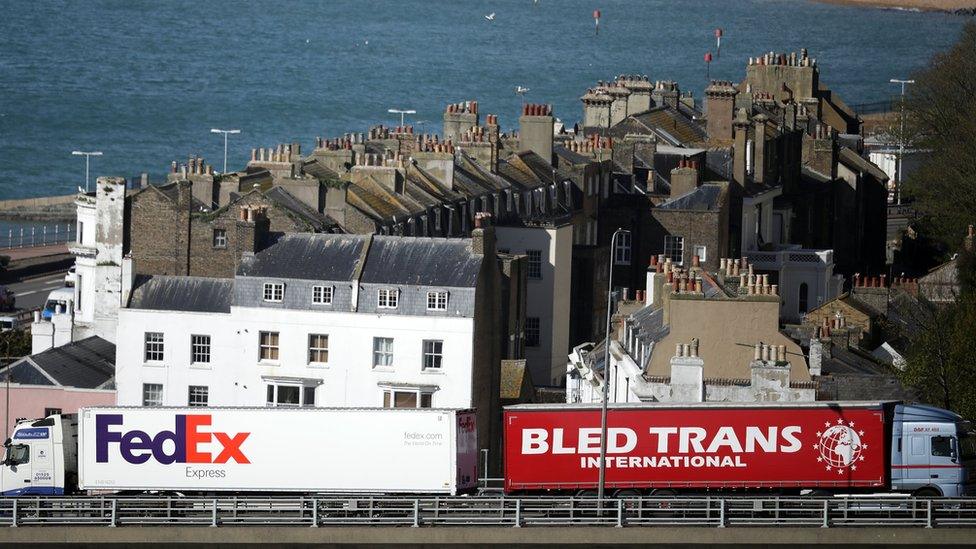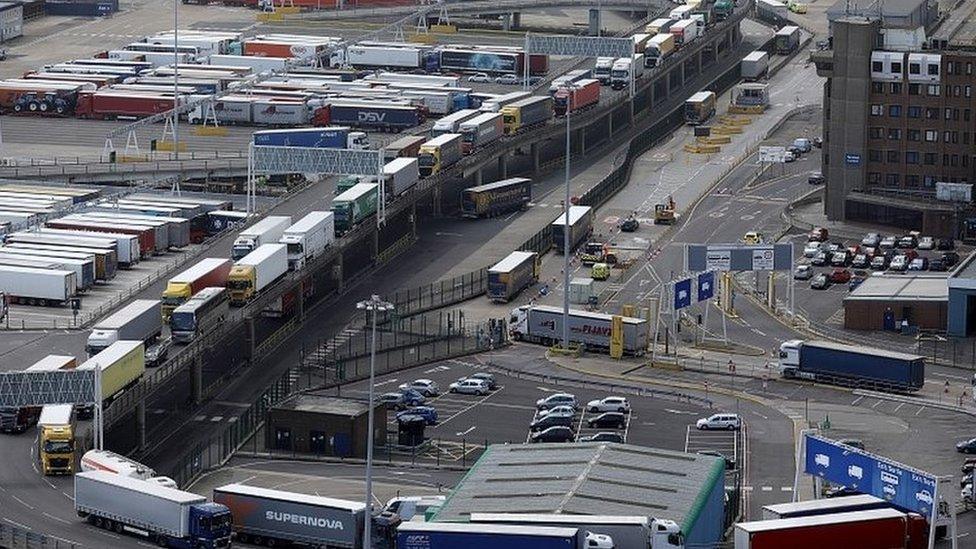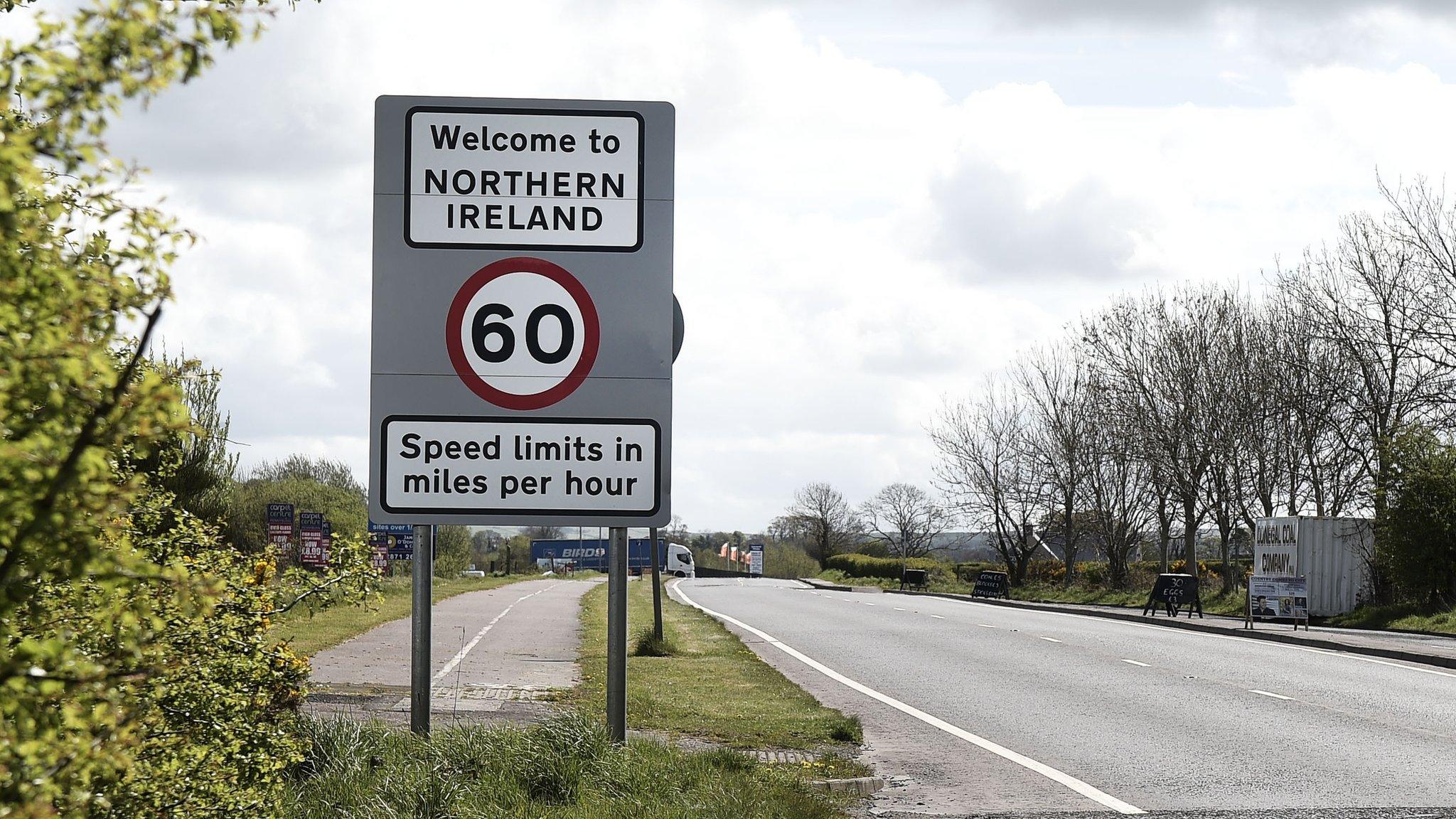Brexit: MPs say UK might have to extend customs union membership
- Published

The government may be forced to stay in the EU's customs union beyond 2020 if if cannot agree new arrangements, a committee of MPs says.
The Brexit select committee said that in the absence of another plan, extending the current arrangements "will be the only viable option".
It said it was "highly unsatisfactory" that ministers have yet to agree their preferred trade arrangements.
The UK is leaving the EU's customs union as part of Brexit.
The customs union lets goods pass between members tariff-free, and the government says it wants to maintain "frictionless" trade with no hard border in Northern Ireland after it leaves.
Two options have been put forward by the UK side to replace it.
One is a "customs partnership", under which the UK would collect tariffs set by the EU customs union on goods coming into the country.
An alternative "maximum facilitation" proposal would rely on technology and advance verification to minimise, rather than remove, customs checks.
The transition period - which is intended to smooth the path to the final arrangements - is intended to last from Brexit day in March 2019 until 31 December 2020.
But the cross-party Brexit committee said "absolute clarity" was needed on customs before the transition begins so the UK's withdrawal agreement can be ratified by MPs and MEPs.
In a paragraph which three of the cross-party committee tried to get removed from the report, the MPs noted the government had not yet agreed which customs model it prefers "despite this being absolutely integral to the future EU-UK relationship and the UK's trade relationship with the rest of the world".
Warning that neither customs options might be ready in time, the committee says: "The secretary of state has ruled out any extension of the customs union but in the absence of any other plan, such an extension will be the only viable option."

What are the UK's customs options?
A "maximum facilitation" arrangement - This would minimise customs checks rather than getting rid of them altogether, using new technologies and things like trusted trader schemes, which could allow companies to pay duties in bulk every few months rather than every time their goods crossed a border
A customs partnership - This would remove the need for new customs checks at the border. The UK would collect tariffs set by the EU customs union on goods coming into the UK. If those goods didn't leave the UK and UK tariffs on them were lower, companies could then claim back the difference.

It also warned that removing customs checks was "not the only challenge that must be resolved in order to secure frictionless trade", with large parts of trade also regulated through the EU's single market, which the UK is also leaving.
On Wednesday the HMRC chief executive told MPs the "maximum facilitation" solution could cost businesses up to £20bn a year, with firms paying £32.50 for each customs declaration.
HMRC chief Jon Thompson told the Treasury committee of MPs this reflected the cost of customs declarations and complying with rules of origin requirements.
Asked whether he accepted the figure, Justice Secretary David Gauke told BBC Radio 4's Today programme there were two options for UK-EU customs "which the government is looking at very closely".
He did not dismiss the £20bn figure, saying it was "the top end" of Mr Thompson's estimate.
He added: "I've no doubt that that is Jon Thompson's best assessment from where he is, but we're continuing to work at ways to ensure that we can keep that number as low as possible and ensure that our trade with European Union is as frictionless as possible, consistent with our ability to seek trade deals with the rest of the world."
- Published23 May 2018

- Published26 April 2018
